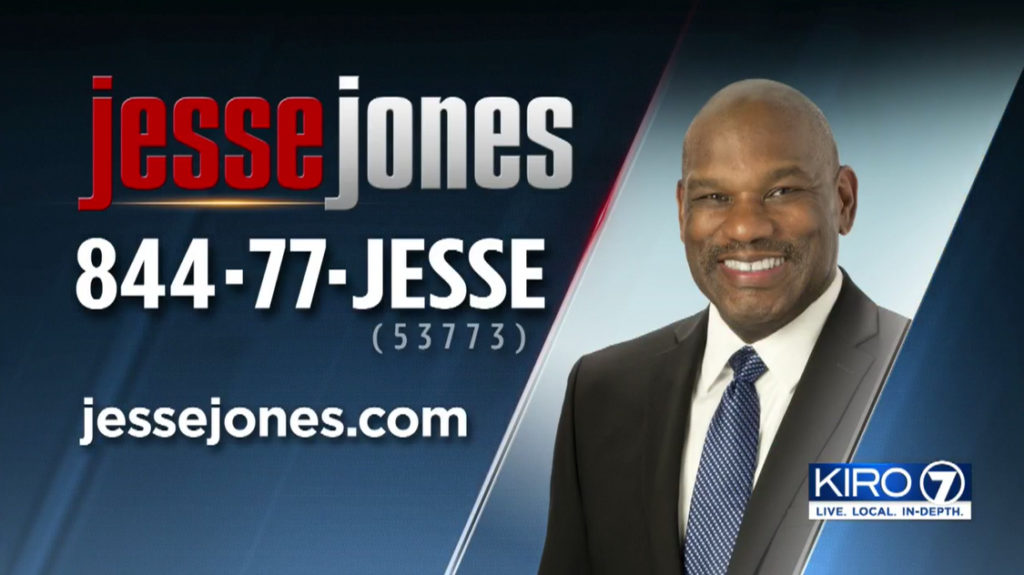You can play golf for money and lose it to other players. Or you watch your money go bye-bye after the round trying to pay your group using Venmo.
“They’re still holding it at this point saying, you know what - they’re reviewing it. But it’s already six months,” says Venmo user Phil Tsao.
See, Phil didn’t know those in his group very well so he decided to pay for the round via the Venmo money app. He wrote out the names of the players and a note that the money was for green fees in the Venmo transaction details.
But Venmo intercepted the deal, then asked Phil for the date of birth of one of his golf partners.
“Actually, I’m thinking this is unjust actually to compel me to provide somebody else’s information which I don’t have and I am incapable of providing,” says Phil.
We’re not talking about a lot of money here: just $84. But this is about more than money.
“Expose such practice,” says Phil. “And make more people to be careful. Because you know you can actually be held responsible for some information you don’t have.”
What this shows is how banking has changed when it comes to the world of money apps. Some have no phone lines, and their rules are different from a bank’s.
Professor Anita Ramasastry teaches banking law and international trade at the University of Washington Law School. She urges users to read the fine print before signing up.
“So what they can do, can’t do, and also whether they reserve the right to refuse your money, hold your money, freeze your money, etc. - that’s the frustrating part, right? And so that’s the piece that consumers have to be careful of,” says Professor Ramasastry.
And:
“Know which app’s customer service people will actually talk to you on the phone when you have a problem,” says Professor Ramasastry.
Because not all apps are created equal.
“There is some, you know, apps that are pretty sketchy. But Cash App - a lot of people use it. And I thought it was pretty safe,” says Cash App user Alisia Thompson.
The Tacoma resident lost more than $2500 to a vicious scam that takes advantage of Cash App not having a customer service phone line where you can speak to an agent.
“I felt violated. It’s not fair,” says Alisia. “And it’s not fair to not be able to speak to someone when using their app.”
Alisia’s sister had issues with the app so she searched the web and found a customer service phone number. But it was fake.
A scammer answered the phone and said he needed another customer to help fix the account.
Alisia got that call.
“He said there’s numbers that’s going to come up on your phone. He said you have to unclick all transactions,” says Alisia.
The scammer asked her to download a program and run a “demo” transferring funds. Her money was gone in a matter of minutes.
“I got off the phone and all of a sudden I get some, a notification from my bank. My bank tells me that $1400 dollars came out of my account. And then turn around, $1100 comes out of my account. I couldn’t believe it,” says Alisia.
Cash App will not provide her with a refund.
I checked the web and found a site that claimed to help cash app customers. So I gave them a call. They picked up saying they were from “Cash App Square.”
I told them I would share the conversation - and the website and phone number with the real company.
We were able to get Phil a refund.
Cash App says it’s still investigating Alisia’s case.
But Alisia says it shouldn’t be easier to talk to a scammer than to speak to an employee of the company. And she’s not happy with how the investigation is going.
“Always wanting me to give, and they never gave me back. Not even saying I’m sorry this happened to you. That would of went a long way,” says Alisia.
In a statement Cash App says:
“We continue to invest in and bolster fraud-fighting resources by both increasing staffing and adopting new technology. We are constantly improving systems and controls to help prevent, detect, and report bad activity on the platform.”
And in Venmo’s case it can hold onto your money for 180 days, the user agreement says, “if reasonably needed to protect against the risk of liability or if you have violated our Acceptable Use Policy.” Though the company did apologize to Phil.
A few tips for money transfer app users from Professor Ramasastry:
- Learn how a company communicates with its customers
- Check news reports to see how scammers have used the company’s name to rip off victims
- Stay away from large transactions on these apps.

Email Jesse right now at consumer@kiro7.com
Cox Media Group








